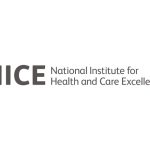The NHS Pharmacy First service heralds a significant change to our country’s primary care system in the way that we regard GPs, pharmacists, and other care providers.
With the launch of the service at the end of January, pharmacists are now able to prescribe for seven common health conditions: sinusitis, sore throats, earaches, insect bites, impetigo, shingles, and UTIs in women.
Though community pharmacists have the potential and acumen take on this added responsibility as a first port of call for patients, many pharmacies face significant operational challenges, including chronic underfunding, staff shortages, and understaffing.
Indeed, to empower our pharmacies to rise to the challenge of Pharmacy First, they must embrace digital transformation.
Building patient trust
Pharmacy First is set to tap into the underutilised potential of community pharmacies, positioning them as key primary care services.
This strategic move aims to strengthen support for the NHS and significantly broaden the responsibilities of community pharmacists on a national scale, alleviating the strain on GPs and accident and emergency (A&E) departments, which are currently overwhelmed with demands.
Despite developments, there does remain a worrying public lack of awareness of the role of pharmacies. A week before the launch of Pharmacy First, a Charac survey in partnership with YouGov revealed that nearly half of patients had limited to no awareness of Pharmacy First.
Patients appeared hesitant to consider pharmacies as their primary point of contact, particularly for certain minor conditions like UTIs, where as low as 23% would go to a pharmacist. However, upon being informed of Pharmacy First, this figure increased notably, reaching up to 56%.
Historically, patient trust in pharmacies has faltered behind other health services. With Pharmacy First assigning new responsibilities to pharmacists, there is an expectation that it will enhance patient confidence in pharmacists’ ability to address minor health concerns, and importantly, establish community pharmacies as a reliable initial point of contact for the public.
Hi, tech
It’s true, community pharmacies are struggling with underfunding – a 30% drop in funding since 2016 and an annual funding shortfall exceeding £750 million (approximately £70,000 per pharmacy) – and pharmacists are severely overworked, with 81% of pharmacy staff are ‘struggling to cope’ with the escalating demand for their services.
Pharmacists, however, are as equipped as GPs to support patients with minor health conditions, and relieve stress on other care providers.
To ensure pharmacists are empowered to assist GPs and A&E departments, community pharmacies require the swift adoption of technology.
Over 30 million people used the NHS App last year, and as evident during the Covid-19 pandemic, digitisation has greatly improved patient care accessibility and lessened the workload for healthcare professionals.
Through a digitally-led system, pharmacists can shift from manual to digital paperwork, enabling easier sharing, storage, and retrieval of patient records while standardising procedures.
This transition will empower pharmacists to maintain comprehensive patient records similar to GPs and hospitals, streamlining processes and reducing unnecessary administrative burdens.
Moreover, pharmacists will be better-equipped to implement programmes like the New Medicine Service, which allows them to claim payment from the NHS and boost revenue.
Utilising technology can enhance the ability of pharmacists to identify eligibility criteria and streamline booking processes for such services, simplifying patient records.
The future
Improved digitisation will enhance patient outcomes and promote equitable access to healthcare. Online scheduling for consultations and prescription delivery services will help increase the accessibility of care and crucial medications.
By enhancing the convenience and availability of pharmacy services, we can grow patient trust in pharmacies.
Furthermore, the storage of patient data can play an important role in improving patient outcomes. Patient management systems have the capability to gather and analyse health data, offering healthcare providers valuable insights for creating personalised treatment plans.
This data-driven approach allows for proactive and preventive healthcare measures, ultimately reducing the chances of complications.
While Pharmacy First is still in its early stages of development, enabling community pharmacies to effectively implement the program is key.
Santosh Sahu is Founder and CEO of Charac






